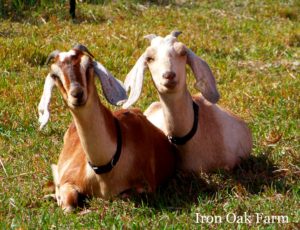 Dairy goats make a great addition to any homestead. They are a small, easy to manage dairy animal that most moderately-sized homesteads can support. There is a wide margin for profit with dairy goats. Below are some ideas to get you started.
Dairy goats make a great addition to any homestead. They are a small, easy to manage dairy animal that most moderately-sized homesteads can support. There is a wide margin for profit with dairy goats. Below are some ideas to get you started.
The Obvious…Dairy Right?
It might seem obvious that the way to make money with dairy goats is to sell…well…dairy! Naturally, you would think that would be the case. But dairy laws are extremely strict and can be quite involved/expensive to fulfill the requirements. (Separate kitchens for handling milk only, inspection fees, special equipment etc.) Some homesteaders can’t justify the process to become licensed compared with what they’re able to produce, especially if you have a small herd. But there are some things you can do.
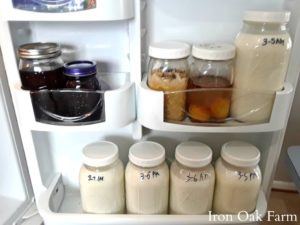 I would raise Nubians even if I didn’t make a dime. I love the breed, love their personality, their goofy antics, and those ears! I also love the healthy raw milk they produce. Raw milk is all but illegal to buy in Michigan, so without our girls, this healthful product would be next to impossible to get for our family.
I would raise Nubians even if I didn’t make a dime. I love the breed, love their personality, their goofy antics, and those ears! I also love the healthy raw milk they produce. Raw milk is all but illegal to buy in Michigan, so without our girls, this healthful product would be next to impossible to get for our family.
Beyond that, I also love the homemade butter and cheve’,… the soap I make…these are all things I would have to buy at the grocery store. I just made a batch of cheve’ from 2 gallons of goat milk (that’s two days worth of milk from our 2 does) and got almost 4 pounds of fresh cheve’. To buy that much cheese at the market would bring a hefty price.
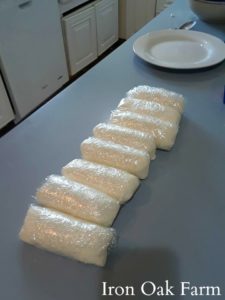 I look at our dairy goats as a combined investment. They provide almost all of our dairy needs, so we’re not necessarily making money with that aspect, but we’re saving money.
I look at our dairy goats as a combined investment. They provide almost all of our dairy needs, so we’re not necessarily making money with that aspect, but we’re saving money.
Herd Share
Participating in a herd share is one way to loophole around the dairy laws. Instead of selling raw milk or dairy to customers, you actually sell a portion of your herd. This makes the customer a “co-owner” of the goat. The milk from that goat then becomes a by-product of ownership. Herd share laws differ state to state (I know things get tricky with butter making etc.) so make sure you research the laws in your area.
Selling Kids
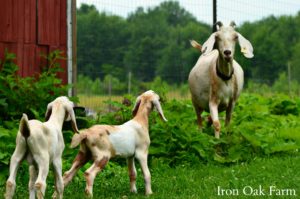 Dairy goats need to be freshened each year. Freshening is a term used to describe that the dam has given birth and is now producing a large quantity of milk. Most goats breed in the fall and have spring babies, though African breeds like Nubians can be in season throughout the year.
Dairy goats need to be freshened each year. Freshening is a term used to describe that the dam has given birth and is now producing a large quantity of milk. Most goats breed in the fall and have spring babies, though African breeds like Nubians can be in season throughout the year.
Each spring we are blessed with an adorable batch of baby goats. Kidding season, while labor intensive, is one of my favorite times on the farm.
Unfortunately, because of space limitations, we can’t keep all the goats our herd produces. But selling kids is always a nice spring income that helps us fund projects throughout the summer.
This year our kid sales helped pay for:
- 600 lavender plants that we will be adding to our U-Pick field.
- Our NPIP Certification for our chicken flock so I can sell hatching eggs
- Some of the lumber for the addition on our chicken coop
- ADGA Registration
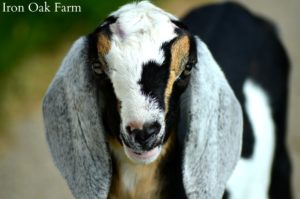 Kids can bring a better price if your herd is registered, come from good bloodlines, up to date on vaccines disbudded and tested free of CAE, CL and Johnes Disease.
Kids can bring a better price if your herd is registered, come from good bloodlines, up to date on vaccines disbudded and tested free of CAE, CL and Johnes Disease.
Soap and Other Goat Milk Products
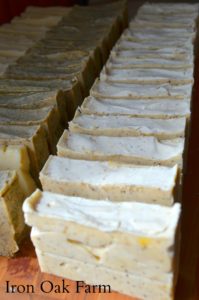 While the soap laws have changed recently (become more strict) selling soap is still a good way to put that dairy to use in a non-edible way. Again, labeling requirements and processes differ state to state but soap making is a much less regulated industry than consumable dairy products.
While the soap laws have changed recently (become more strict) selling soap is still a good way to put that dairy to use in a non-edible way. Again, labeling requirements and processes differ state to state but soap making is a much less regulated industry than consumable dairy products.
Teaching
Teaching classes at your farm is a great way to make a profit! We used to teach “An Afternoon with a Goat” class, where we would go over what dairy goats require for good health, how to milk, trim hooves, test for mastitis etc. It always had a great turn out!
Other class ideas:
-Milk handling classes
-Soap making class
-Cheese making, yogurt, butter etc.
Yoga
Have you heard of this trend? Goat Yoga is becoming more and more popular. People practice yoga poses while they interact with goats. It seems like a great time and a relaxing experience! You could coordinate with a local yoga teacher and see if there would be a willingness to teach at your farm. A fee per student could be collected.










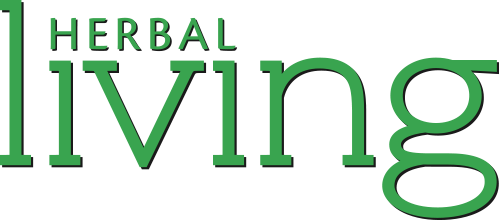
2 Comments
Hi Jennifer, I love your blog posts about the homesteading life with your husband Zac, goats, bees, etc. You guys are doing what my husband and I hope to do one day soon. Just one small thing I wanted to point out: I think you meant chèvre, not cheve, when you were talking about goat cheese? https://cheese.com/chevre/
I am alarmed by the photo of the jars of raw goats milk that appear to be housed in the door of the refrigerator. Raw milk must be cooled quickly and maintained at 1-4 degree Celsius to be SAFE.
the door of the fridge DOES NOT maintain the milk within this range.